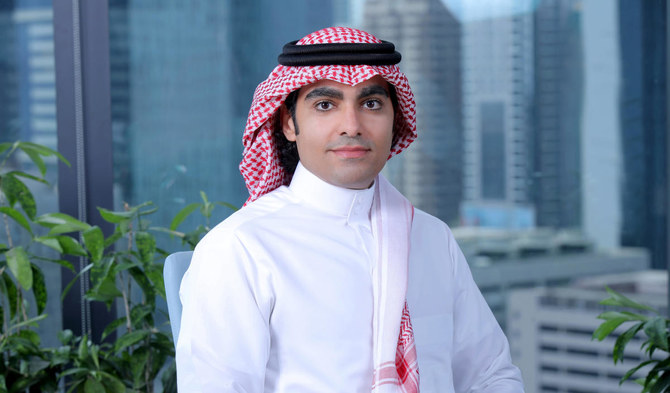JEDDAH: French corporate and investment banking company Natixis has expanded its operations into Saudi Arabia in order to mediate between international investors and regional borrowers who want to focus on more sustainable and environmentally friendly ways of doing business.
While the company has had a presence in the Middle East for over 20 years, it was awarded a license to operate in the Kingdom by the Capital Market Authority in May this year.
Barbara Riccardi, the company’s regional head in the Middle East, said it was an obvious move as the Kingdom is “one of the largest contributors” to the region’s economy.
Ammar Bukhamsin, the company’s newly appointed CEO for Saudi Arabia, said its expansion aims “to further grow this franchise and bring our expertise and our market-leading solutions closer to our clients and support the needs of borrowers and Islamic investors.”
Headquartered in Paris, where 196 countries signed a ground-breaking climate change agreement in 2015, Natixis has a strong focus on green, sustainable projects and financing.
Riccardi said: “We’re all in toward supporting the country’s development into a more green, sustainable future, which is particularly key in Saudi’s Vision 2030.”
She added that the Kingdom is already making progress as part of its drive to diversify its economy away from a reliance on hydrocarbons.
Bukhamsin said: “We’re very keen to bring our global and market expertise, which I think are directly linked to all these diversification ambitions that the country has.”
He took up his post at Natixis in Saudi Arabia in November, having worked in the finance sector for more than 16 years.
His career started in 2004 at Citi, before moving to UBS in London in 2010 and Goldman Sachs in Dubai in 2013.
In 2015 Bukhamsin joined Natixis, and was appointed head of global markets sales for the Middle East in 2019.
French green bank expands into Saudi Arabia
https://arab.news/4g52k
French green bank expands into Saudi Arabia

- Natixis was awarded a license to operate in the Kingdom by the Capital Market Authority in May this year
- Ammar Bukhamsin is the company’s newly appointed CEO for Saudi Arabia
Closing Bell: Saudi main index closes in red at 10,847

RIYADH: Saudi Arabia’s Tadawul All Share Index dipped on Wednesday, losing 58.51 points, or 0.54 percent, to close at 10,847.93.
The total trading turnover of the benchmark index was SR3.78 billion ($1 billion), as 73 of the listed stocks advanced, while 187 retreated.
The MSCI Tadawul Index decreased, down 7.09 points or 0.48 percent, to close at 1,472.98.
The Kingdom’s parallel market Nomu lost 178.75 points, or 0.77 percent, to close at 22,916.83. This comes as 30 of the listed stocks advanced, while 37 retreated.
The best-performing stock was the Power and Water Utility Co. for Jubail and Yanbu, with its share price surging by 8.47 percent to SR31.24.
Other top performers included Saudi Paper Manufacturing Co., which saw its share price rise by 6.13 percent to SR53.70, and Jamjoom Pharmaceuticals Factory Co., which saw a 4.58 percent increase to SR137.
On the downside, the worst performer of the day was CHUBB Arabia Cooperative Insurance Co., whose share price fell by 5.14 percent to SR17.53.
Saudi Kayan Petrochemical Co. and Arabian Internet and Communications Services Co. also saw declines, with their shares dropping by 4.87 percent and 4.43 percent to SR4.88 and SR181.40, respectively.
On the announcement front, Saudi Kayan Petrochemical Co. announced its annual financial results for 2025, with sales dropping 3.06 percent year-on-year to SR8.45 billion. The company also recorded a net loss of SR893.86 million.
In a Tadawul statement, the company said the net loss and decline in annual sales were driven by a drop in average selling prices, despite higher sales volumes.














